Dr Huey and Microenvironments
Dr Huey, a hybrid wichurana, is a rose known in some form to most rose growers. A very few people grow it as the rose itself, but that is the exception rather than the rule. It is a mildew magnet, at least in my yard, and a once bloomer. During the spring bloom, however, it can be spectacular.
For many years Dr Huey has been used a root-stock onto which to graft roses known for their blooms. It has been very useful for that purpose.
Many of us encounter Dr Huey when we have “shovel pruned” a rose and not completely gotten out the roots of this root-stock. We may also encounter it after various adverse conditions – drought, cold, and so forth – have stressed the grafted rose, and only the strong root-stock remains. That is one way of saying I have it in my yard every now and then. If it appears in the spring, I usually leave it until after the local rose show in case I want to use the foliage as line material in arrangements. Then, I will work to remove it so the planned rose in that spot can grow without competition from the strong root-stock.
Here in the high desert in the Rio Grande Valley, we have a variety of growing conditions that challenge the most dedicated gardeners. Once the soil has been amended, roses do pretty well where I live in Albuquerque if they get adequate water. In February 2011 we had an extreme cold snap from which I did lose some roses, but that is rare. We do not winterize our roses here, because it generally is not necessary. I live up toward the mountains and away from the river.
I have good friends who live right along the Rio Grande. We all learned in school that “warm air rises and cold air sinks.” When I go to visit them, even on the hottest summer days, I always take a jacket along if I am going to be there after sunset. It gets cold. In the winter, although the daytime temperatures may be similar to mine, the night temperatures can be up to 20°F colder. Their last average frost-free date can be a month later than mine. “We’re hard on roses here.”
My friends are not the only ones who are “hard on roses” in the Rio Grande Valley. The entire community in which they live is “hard on roses,” if, that is, they are grafted roses. For a week or two in the spring, Dr Huey can be seen in bloom everywhere, and it is quite beautiful. This rose can get huge, and covered with blooms can be very spectacular.
These images of Dr Huey are from the First Annual Dr Huey Rose Tour of the Corrales Rose Society, last year (2014).
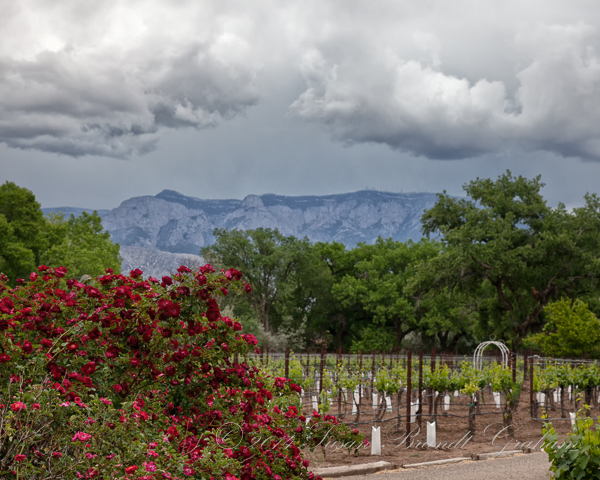
Dr Huey at entrance to vineyard in the Rio Grande Valley. It was a stormy day.
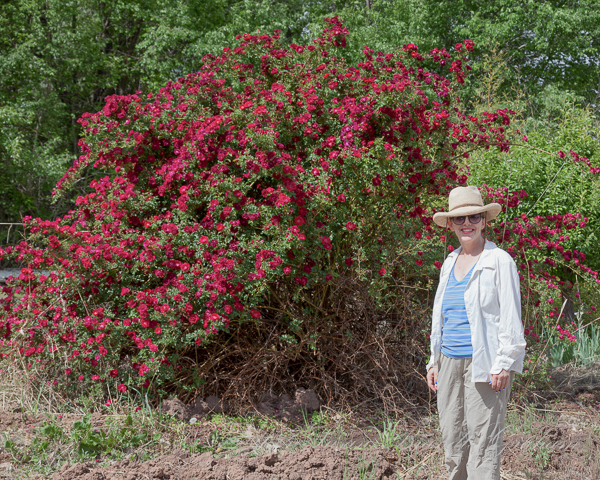
Laurie with Dr Huey at her home
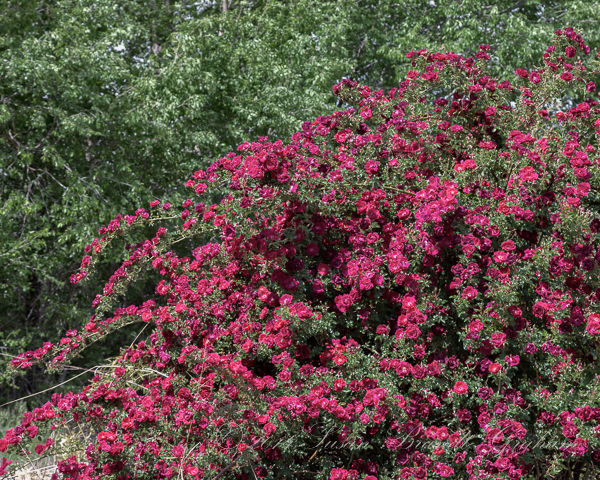
Dr Huey at Tim and Laurie’s home
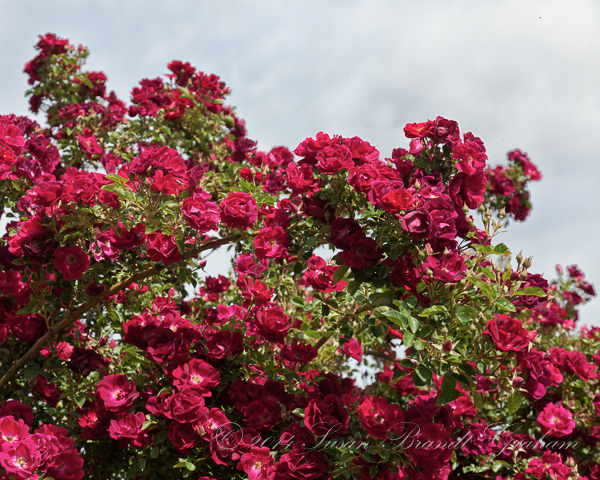
Dr Huey
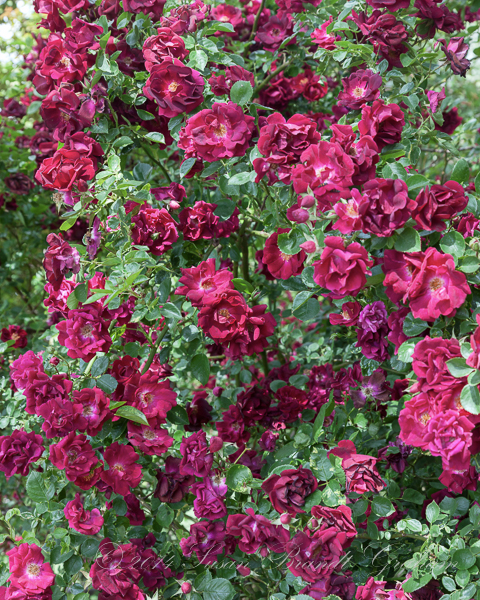
Dr Huey
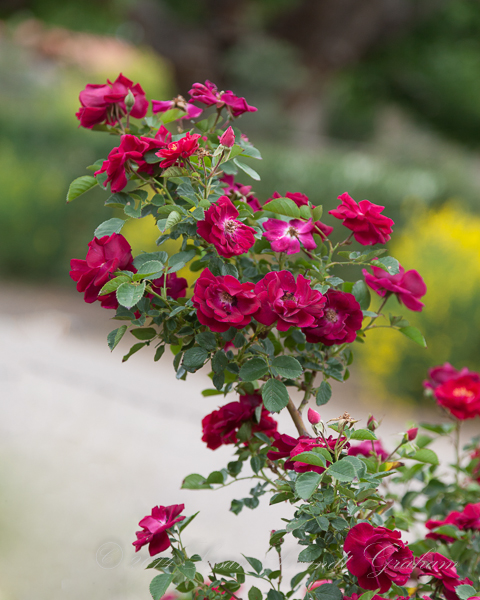
Dr Huey on the road
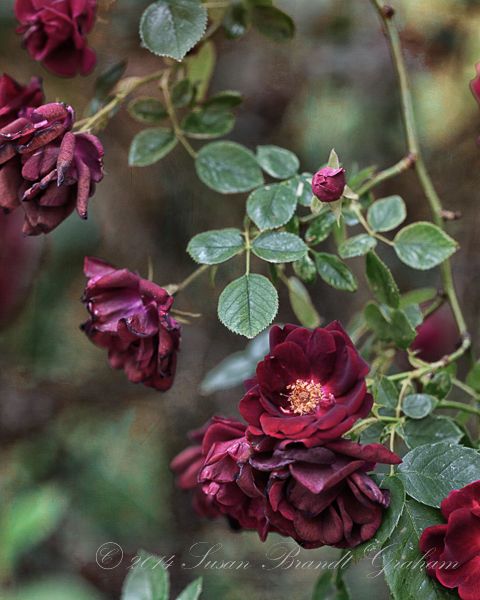
Close up of very large Dr Huey
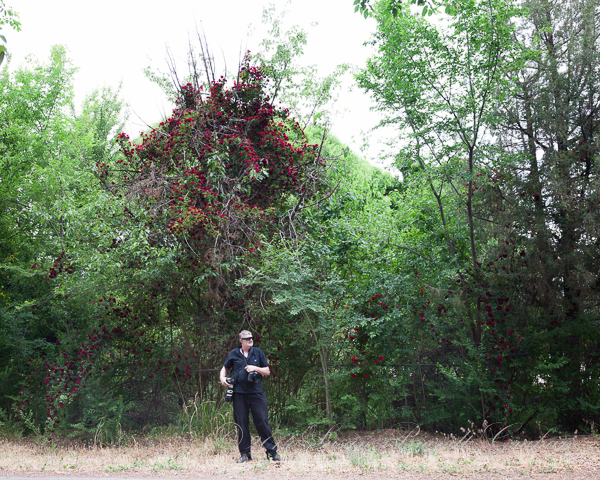
HUGE Dr Huey. Follow it out to the sides of the image!



Great photo essay, Susan! The giant Dr. Huey in the last photo is well over 20 feet up in that tree. I’m 6’1″ and it’s a little more than 3 times my height.
Hi, Tim! Thanks!
Thanks not only for the comment, but for making me aware of the existence of this phenomenon! I’m looking forward to this year! 🙂
Great series – you really make Dr. Huey look glorious!!
Thanks, Laurie! Dr. Huey was glorious that day, and you and Tim made the entire day wonderful! It is a day I’ll remember for a very long time! Thank you!